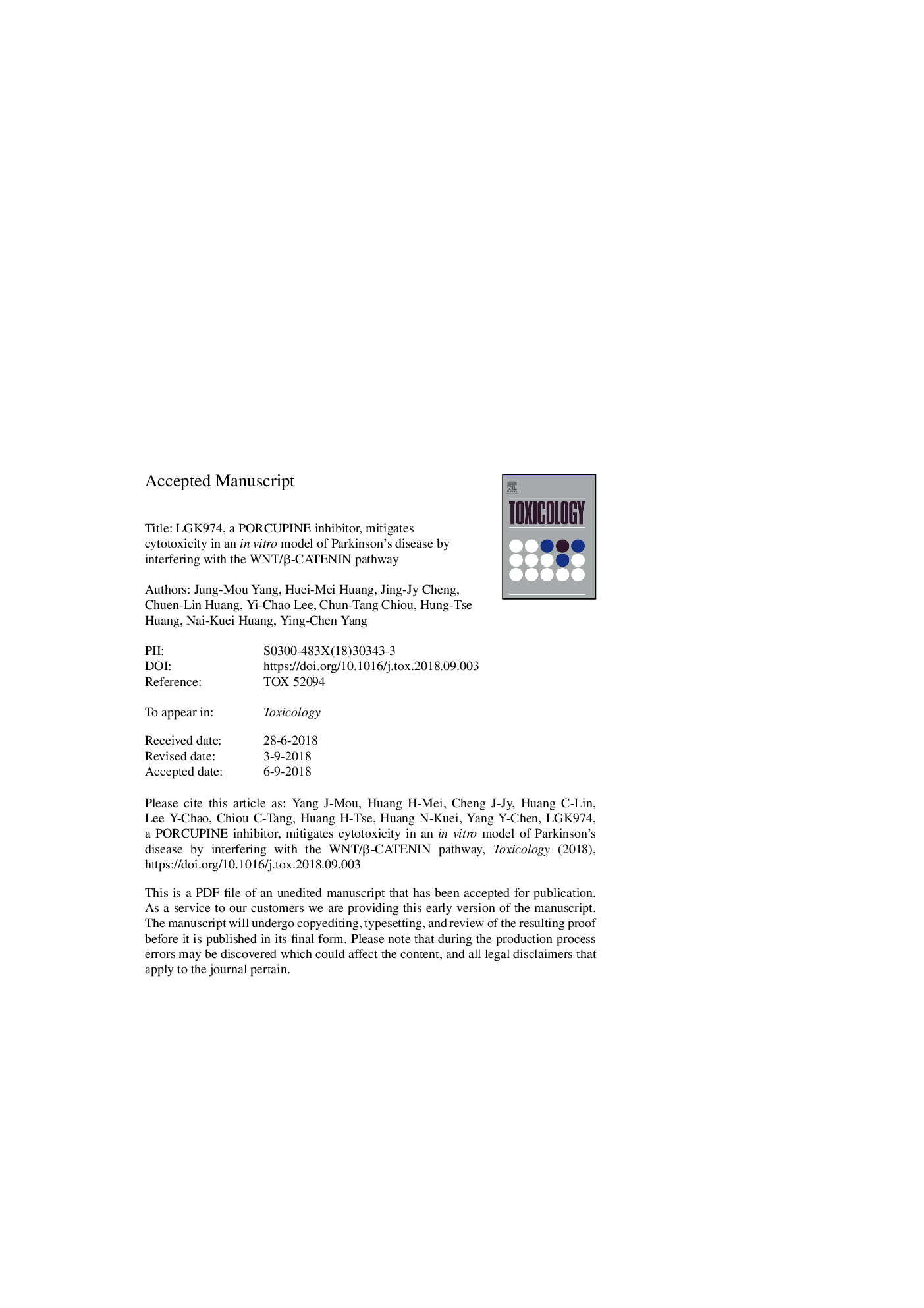| Article ID | Journal | Published Year | Pages | File Type |
|---|---|---|---|---|
| 10143408 | Toxicology | 2018 | 37 Pages |
Abstract
Paraquat (PQ) as an herbicide has been demonstrated to impair dopaminergic (DAergic) neurons and highly correlate with the etiology of Parkinson's disease (PD). WNT/β-CATENIN signaling is known for the specification and neurogenesis of midbrain DAergic neurons and implicated as a therapeutic target in treating many diseases, such as cancer and degenerative diseases. LGK974, a WNT pathway inhibitor, is currently under clinical trial for patients with malignancies. Since the exact role of WNT/β-CATENIN signaling in mediating PD is undetermined, LGK974 was used to examine its effect on the PQ-induced cell model of PD. LGK974 attenuated PQ-induced apoptosis and released mitochondrial pro-poptotic molecules in human neuroblastoma SH-SY5Y cell. PQ increased the levels of β-CATENIN, non-phosphorylated (Ser33/37/Thr41) β-CATENIN, and phosphorylated glycogen synthase kinase (GSK)-3α/β. PQ also increased the nuclear translocation of β-CATENIN, which can be attenuated by LKG974. Furthermore, LGK974 attenuated the PQ-induced release of mitochondrial proapoptotic factors and WNT agonist 1-induced cell death. Taken together, we have shown for the first time that LGK974 mediated through the WNT/β-CATENIN pathway to prevent PQ-induced cell death.
Related Topics
Life Sciences
Environmental Science
Health, Toxicology and Mutagenesis
Authors
Jung-Mou Yang, Huei-Mei Huang, Jing-Jy Cheng, Chuen-Lin Huang, Yi-Chao Lee, Chun-Tang Chiou, Hung-Tse Huang, Nai-Kuei Huang, Ying-Chen Yang,
